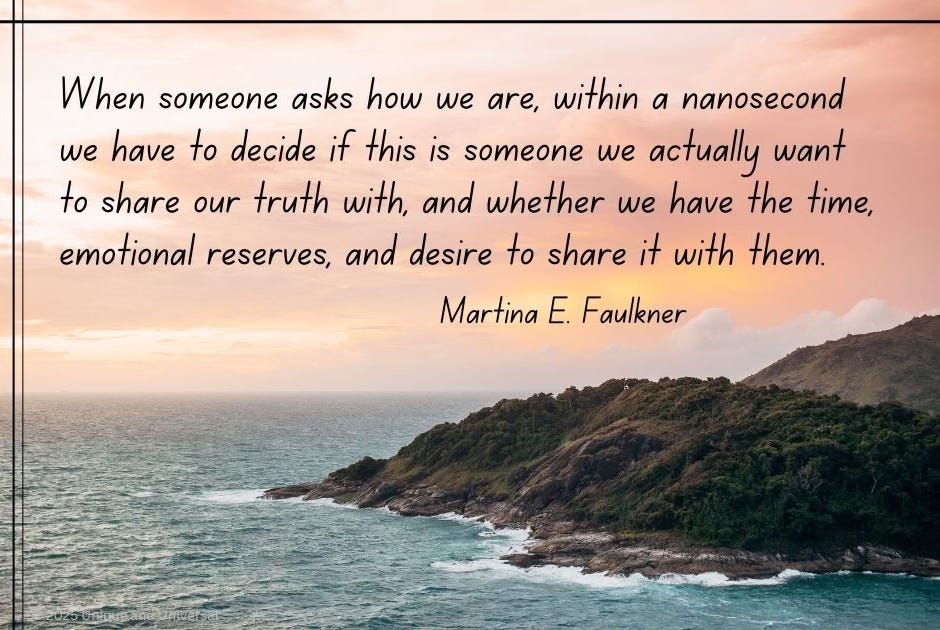How often have you responded with the word “fine” when asked how you’re doing or how things are going in your life? It’s an almost automatic response for many of us, and yet, what does “fine” really mean?

There’s a funny meme about its definition (that has a few variations) that essentially makes “fine” an acronym for:
Frustrated (Or: Freaked out / F’d up)
Insecure
Neurotic
Emotional (Or: Empty)
There is also another version that defines “fine” as: Feelings In Need (of) Expression. All of these examples are quite expressive and may certainly be accurate, since “fine” often denotes some measure of detachment or disinterest in sharing.
However, there’s another acronym that I’ve come up with for some of my clients that might more precisely explain what’s actually going on when we use the word “fine” in response to a question about how we’re doing:
Faking It Nearly Everyday
When we say we’re “fine”, what we’re often saying is:
I’m doing enough to keep it together, and
I don’t wish to talk about it (either with you or at this time, or both).
When someone asks how we are, within a nanosecond we have to decide if this is someone we actually want to share our truth with, and whether we have the time, emotional reserves, and desire to share it with them. If it’s not a “yes” to both of those criteria, the answer is usually “fine” because it’s what allows us to continue moving forward in whatever way we feel is enough. It allows us to keep “faking” it, until a) we are with the people we trust to share ourselves with, and b) we have the space to do so in a healthy and supportive way.
In this scenario, responding “fine” is not only healthy, but it’s also smart. It’s smart because not everybody has earned the right to hear our truth and not everybody deserves our emotional resources and time. So, if saying you’re “fine” allows you to keep going, even if it’s not the most honest answer you can give, that’s okay.
There are other times when we say we are fine because that’s what we need to be, even if we don’t feel it. In those moments, if we don’t say we’re “fine” we fear that things might fall apart. “Fine” allows us to keep going when things feels hard. It’s an honest response when looked at from this lens, because it’s not about denying our emotions or not expressing them; instead, it’s about putting a pin in our emotions and tabling them for a later date/time or a different person—ones that are more appropriate and/or safe and supportive.
Thank you for your continued support of my work. If you want to read my newest series, Understanding, click here.





